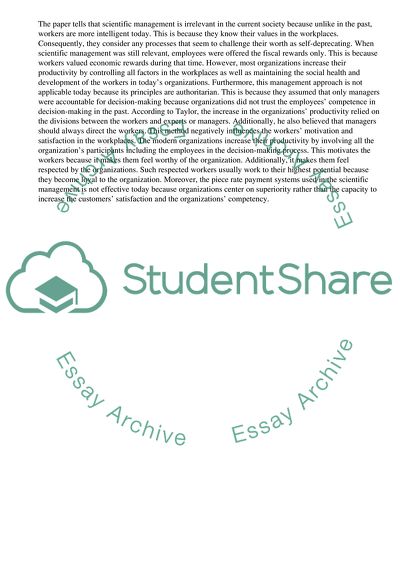Cite this document
(“Why Scientific Management Has No Relevance Today Essay - 11”, n.d.)
Why Scientific Management Has No Relevance Today Essay - 11. Retrieved from https://studentshare.org/management/1462230-scientific-management-was-the-product-of-19th-century-industrial-practices-and-has-no-relevance-to-the-present-day-discuss
Why Scientific Management Has No Relevance Today Essay - 11. Retrieved from https://studentshare.org/management/1462230-scientific-management-was-the-product-of-19th-century-industrial-practices-and-has-no-relevance-to-the-present-day-discuss
(Why Scientific Management Has No Relevance Today Essay - 11)
Why Scientific Management Has No Relevance Today Essay - 11. https://studentshare.org/management/1462230-scientific-management-was-the-product-of-19th-century-industrial-practices-and-has-no-relevance-to-the-present-day-discuss.
Why Scientific Management Has No Relevance Today Essay - 11. https://studentshare.org/management/1462230-scientific-management-was-the-product-of-19th-century-industrial-practices-and-has-no-relevance-to-the-present-day-discuss.
“Why Scientific Management Has No Relevance Today Essay - 11”, n.d. https://studentshare.org/management/1462230-scientific-management-was-the-product-of-19th-century-industrial-practices-and-has-no-relevance-to-the-present-day-discuss.


